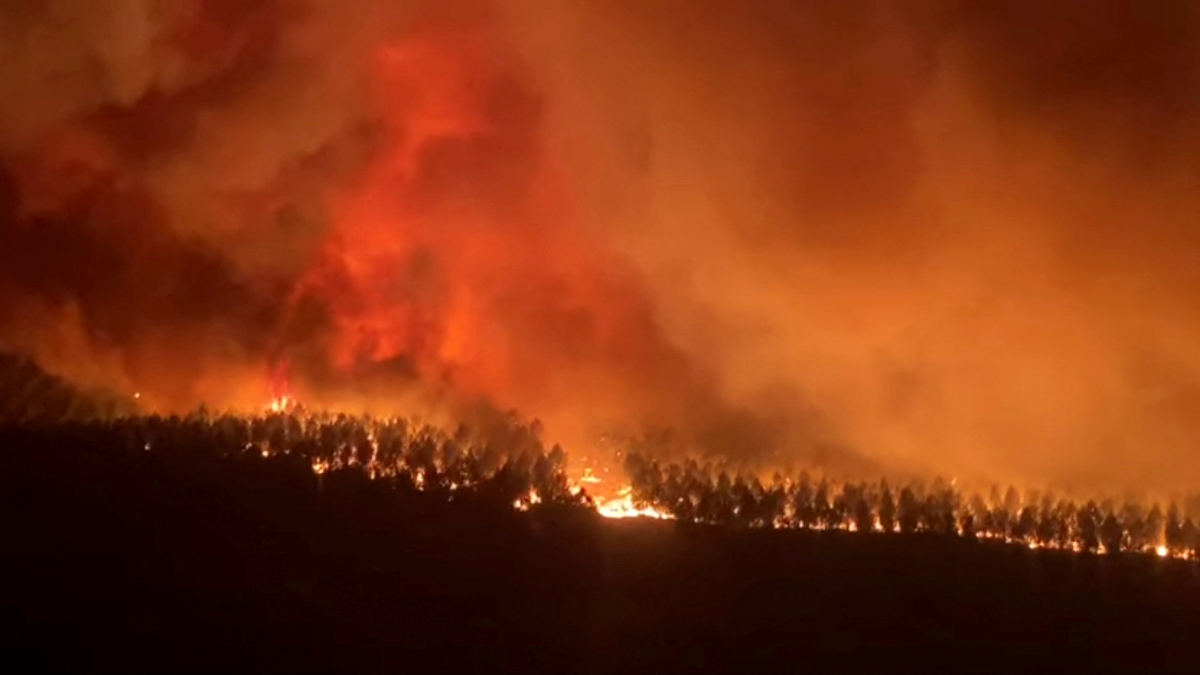
Summary – Wildfires in southern France raise urgent questions on climate resilience and international disaster response.,
Article –
The recent wildfire in southern France has become a significant environmental and social crisis, raising urgent issues about climate resilience and the necessity for international disaster response. The fire erupted on Tuesday, quickly consuming 12,000 hectares of dense vegetation and injuring nine people, including both firefighters and civilians. Despite the slowing of the fire by Wednesday, it remains a grave concern due to its extensive ecological and economic impacts.
Background of the Wildfire
The fire began in a region known for its dense vegetation and susceptibility to high summer temperatures. Fueled by dry conditions and regional winds, it rapidly spread across vast forest and grassland areas. Emergency responders faced challenging terrain but mobilized swiftly to contain the blaze. The scale of this event reflects the increasing frequency and intensity of wildfires witnessed across Europe, tied closely to climate change.
Evacuations were implemented in multiple communities to protect residents, underscoring the vulnerability of southern Europe to climate-driven natural disasters, especially with the rise of heatwaves and prolonged droughts.
The Global Impact of Wildfires
This wildfire exemplifies broader global trends, where rising temperatures, changing rainfall patterns, and extended dry spells elevate wildfire risks. The resulting fires:
- Complicate containment efforts
- Cause severe ecological damage
- Strain economic budgets due to firefighting costs and infrastructure damage
- Disrupt agricultural, forestry, and tourism sectors, especially in economically significant countries like France
- Degrade air quality with smoke and particulate matter, sometimes affecting neighboring countries and creating transnational health concerns
Global Reactions and Cooperation
In response, neighboring European countries have swiftly extended support through the EU Civil Protection Mechanism, which enhances coordinated disaster response. Spain and Italy, familiar with wildfire challenges, have contributed expertise and resources.
International environmental groups emphasize the wildfire as a portent of climate change’s growing impact and advocate for stronger climate policies and investments in resilient infrastructure.
Policymakers are also discussing urgent revisions to land management and urban planning practices to mitigate wildfire risks, with topics expected to be highlighted in forums like the G20 and COP summits.
Looking Ahead: Recovery and Preparedness
The immediate priority is full extinguishment of the fire and ensuring safety. Longer-term recovery will focus on ecological restoration to repair habitats and prevent soil erosion and loss of biodiversity.
Experts foresee the wildfire driving enhancements in:
- Wildfire forecasting and early warning systems
- Firefighting resources and technology adoption, including satellite monitoring and AI-based fire risk prediction
- Cross-border collaboration and integrated climate resilience policies
This event serves as a critical case study on how environmental shifts intersect with disaster response and international cooperation. With climate change trends likely to increase wildfire frequency and severity, a proactive, unified global response is paramount to safeguarding communities and ecosystems.

